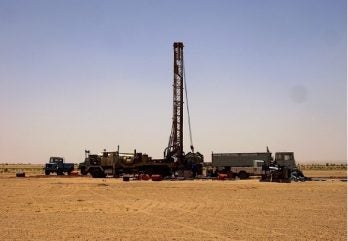
Canada’s GoviEx Uranium no longer has rights over the perimeter of the Madaouela mining permit after the Niger revoked its licence to develop one of the world’s largest uranium projects. GoviEx had been concerned that its licence might be revoked if mining could not start by 3 July – the deadline set by Niger’s military leaders who came to power a year ago. The government of Niger holds a 20% stake in Comima SA, the Nigerien company set up to develop the Madaouela project.
A GoviEx press release said that the licence withdrawal “does not follow the procedure prescribed under the applicable mining code” in Niger, and that it reserves the right to challenge the decision before the competent national or international jurisdictions. GoviEx dded that it believes the government’s decision to withdraw the mining rights for the Madaouela project will have a negative impact on the economic and social development of the region.
This follows the revocation in June of the permit for France’s Orano to operate the Imouraren mine., also containing one of the world’s largest uranium reserves. That permit was awarded in 2009 but was put on hold by the company pending favourable market conditions.
GoviEx began operations in Niger in 2007, since when it has completed 650,000 metres of drilling to define its potential mineral resource and advance the project through periods of low uranium prices. The project reached its feasibility stage in late 2022. The technical report estimated that the Madaouela project could host proven and probable reserves of 5.4m tonnes grading 0.87 kg per tonne uranium oxide (U3O8) for 12.3m pounds of U3O8. Production over the life of mine was forecast at 50.8m pounds of U3O8, or nearly 2.7m pounds a year.
Over the past year, the company had secured more than $200m in expressions of interest for debt financing, had updated environmental assessments and had initiated engineering designs. It had also begun preliminary groundwork, including road construction and exploitation activities at the project site. In June it had received a radiological certificate, which is needed to start production. With initial capital expenditure of $343m, the project was expected to generate up to 800 jobs over 20 years and contribute royalties and taxes to the Nigerien government.
Niger’s Mines Minister Ousmane Abarchi visited Madaouela in May as part of a tour of mining projects in the northern Agadez region. The tour also included Global Atomic’s Dasa project, where underground development began in late 2022 and first deliveries of uranium are expected in 2025.






